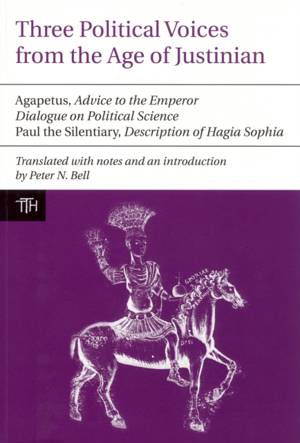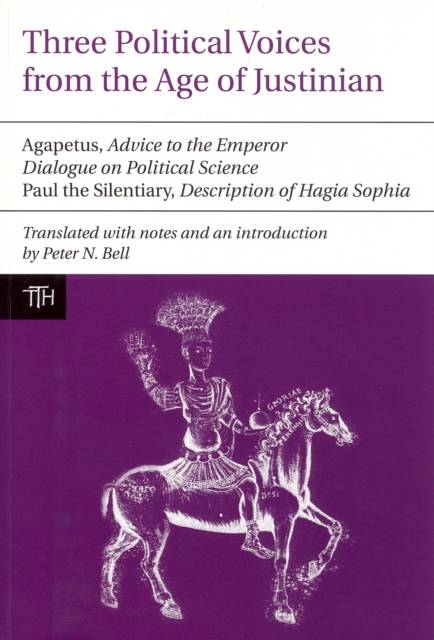
Door een staking bij bpost kan je online bestelling op dit moment iets langer onderweg zijn dan voorzien. Dringend iets nodig? Onze winkels ontvangen jou met open armen!
- Afhalen na 1 uur in een winkel met voorraad
- Gratis thuislevering in België vanaf € 30
- Ruim aanbod met 7 miljoen producten
Door een staking bij bpost kan je online bestelling op dit moment iets langer onderweg zijn dan voorzien. Dringend iets nodig? Onze winkels ontvangen jou met open armen!
- Afhalen na 1 uur in een winkel met voorraad
- Gratis thuislevering in België vanaf € 30
- Ruim aanbod met 7 miljoen producten
Zoeken
Three Political Voices from the Age of Justinian
Agapetus - Advice to the Emperor, Dialogue on Political Science, Paul the Silentiary - Description of Hagia Sophia
€ 34,95
+ 69 punten
Omschrijving
This one-volume translation, with commentary and introduction brings together three important works. All three texts cast great, if generally neglected light on politics and ideology in early Byzantium. Agapetus wrote, c. 527-30CE, from a position sympathetic to Justinian, when he had still to consolidate his authority. He sets out what an emperor must do to acquire legitimacy, in terms of government's being the imitation of God. Read in context, his work is much more than a list of pious commonplaces. The Dialogue, written anonymously towards the end the same reign, comprises fragments from Books 4-5 of a philosophically sophisticated (lost) longer work, setting out requirements for the ideal polity, based on a similar concept of imperial rule, with extensive comment on matters of current political salience but from an implicitly hostile standpoint. Not only does the text reflect the nature of Neoplatonic political philosophy but it also penetrates with its ideas deep into the inner realities of the time, into the political problems of Constantinople during the first half of the sixth century. The third text was written by Paul the Silentiary to mark the rededication of the basilica Hagia Sophia, built thirty years earlier under the orders of Emperor Justinian I. Together the translations provide an important insight into the early Byzantine period.
Specificaties
Betrokkenen
- Uitgeverij:
Inhoud
- Aantal bladzijden:
- 256
- Taal:
- Engels
- Reeks:
- Reeksnummer:
- nr. 52
Eigenschappen
- Productcode (EAN):
- 9781846312090
- Verschijningsdatum:
- 15/04/2010
- Uitvoering:
- Paperback
- Formaat:
- Trade paperback (VS)
- Afmetingen:
- 145 mm x 208 mm
- Gewicht:
- 362 g

Alleen bij Standaard Boekhandel
+ 69 punten op je klantenkaart van Standaard Boekhandel
Beoordelingen
We publiceren alleen reviews die voldoen aan de voorwaarden voor reviews. Bekijk onze voorwaarden voor reviews.










